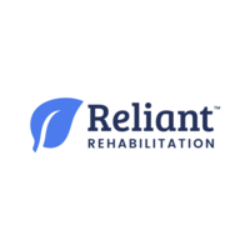On Friday, April 19, 2019, CMS
released the FY2020 skilled nursing facility (SNF) proposed rule for public
inspection and comment.
There is estimated to be a 2.5%
market basket increase for FY2020 aggregate payments as calculated through a
3.0% market basket increase and a 0.5% multifactor productivity adjustment
resulting in an $887 million annual increase.
The proposed rule includes three
proposed changes related to the Patient Driven Payment Model (PDPM). First, CMS
proposes changing the definition of group therapy in a SNF setting to match the
definition in the IRF setting. Specifically, CMS proposes defining group
therapy in the SNF Part A setting as “a qualified rehabilitation therapist or
therapy assistant treating two to six patients at the same time who are
performing the same or similar activities.”
Second, CMS proposes using a
subregulatory process to provide non-substantive updates to ICD-10 codes used
in PDPM through the PDPM website, while substantive changes will still be made
through the traditional notice and rulemaking process. Non-substantive updates
are those made to maintain consistency with the most recent ICD-10 code set.
CMS is proposing that this take effect with the start of PDPM on October 1,
2019.
The third and final proposed
change is to update the regulation text to reflect changes in the assessment
schedule under PDPM which were already finalized in the FY2019 final rule.
These changes are to reflect the policy taking effect under PDPM on October 1,
2019. For the initial patient assessment, the proposed regulation changes would
state that “the assessment schedule must include performance of an initial patient
assessment no later than the 8th day of post-hospital SNF care.” Additional
proposed changes to regulation text would reflect the optional interim payment
assessment.
SNF Quality Reporting Program
This
rule proposes to update the SNF QRP effective October 1, 2020 to include:
- Expansion of data collection for the SNF
QRP quality measures to all skilled nursing facility residents, regardless of
their payer.
- The addition of two Transfer of Health Information
quality measures.
- Exclusion of baseline nursing home residents from the
Discharge to Community Measure.
- Public display of the quality measure, Drug Regimen
Review Conducted with Follow-Up for Identified
Issues.
Request
for information (RFI) on the importance, relevance, appropriateness, and
applicability measures of standardized patient assessment data elements
(SPADEs) for future years in the SNF QRP.
SNF Value Based Purchasing Program
The
SNF VBP Program is proposing to change the name of the program’s measure to the
“Skilled Nursing Facility Potentially Preventable Readmissions after Hospital
Discharge” measure. The measure will retain its previous abbreviation (SNFPPR).
The
proposed rule also includes an update to the public reporting requirements to
ensure that CMS publishes accurate performance information for low-volume SNFs.
CMS encourages comments from
stakeholders. The comment period is open until June 18, 2019.
Download the proposed rule from the Federal Register.
Download the CMS fact sheet.
To learn more about Reliant’s preparedness
for PDPM, visit our website today.


